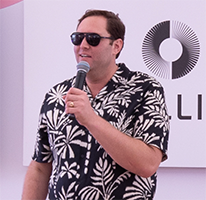The FTC was handed a stunning defeat this Monday by a jury in Seattle, Washington. Much to the surprise of many (if not most) watching this case, a jury in U.S. District Court held that Impulse Media Group, Inc., was not responsible for unsolicited emails sent by some of its affiliates, seeking to drive traffic to its sites.
This case was part of the FTC’s push to make networks and others strictly liable for the actions of their affiliates. The FTC has been pushing in this direction for some time, and has managed to settle quite a few cases.
The attempted extension of liability to networks with reasonable compliance policies, procedures and enforcement in place has long concerned professionals in the industry. When a network can be alleged to be liable for the conduct of all of their affiliates, even if they are taking reasonable precautions to avoid affiliate abuse, how can a company protect itself? Under the attempted extension of liability, even doing the right thing is sometimes not enough.
In the Impulse Media case, the company defended itself by citing the company’s anti-spam policies. It was also able to present proof that it had terminated affiliates who didn’t abide by those policies. Apparently, the jury believed that the company had acted reasonably in policing its affiliates, and that it couldn’t be held liable. That sounds reasonable to me, and it’s good news for the industry.
According to Linda Goodman, one of the industry’s top internet compliance attorneys who has extensive experience dealing with the FTC,
“…[C]ontrary to the FTC’s prior position that there is strict liability for the conduct of affiliates, this jury found that so long as the network takes commercially reasonable steps to investigate their affiliates and monitors them for CAN SPAM compliance and terminates offenders, the FTC will have little ground to bring suit against them. If they do not vet out their affiliates or monitor them and simply claim ignorance, then the FTC will still go after them. So best practice is to be sure to have an affiliate compliance program in place and this case proves it.”
Be clear that this doesn’t mean that networks are off the hook for problems caused by their affiliates. What it does mean is that if you want to sleep well at night, you should have a reasonable compliance program in place and be able to demonstrate that you terminate offending affiliates. Make sure you have the documentation, and you can rest a little bit easier at night.
_______________________________________________________________
Come back to the iLegal column every week as we get specific about the rules, regulations, laws and trends that affect the online advertising industry. Each week we discuss important legal issues, talk about how to avoid the pitfalls, and cover the breaking legal and regulatory advertising industry news.
Legal Disclaimer: Information conveyed in this column is provided for informational purposes only and does not constitute legal advice. These materials do not necessarily reflect the opinions of Digital Moses, and is not guaranteed to be complete, correct, or up-to-date. The column is provided for "information purposes" only and should not be relied upon as "legal advice." This information is not intended to substitute for obtaining legal advice from an attorney. No person should act or rely on any information in this column without seeking the advice of an attorney.
Mark Meckler is the General Counsel for UniqueLeads.com, Inc., and Unique Lists, Inc. Mark is the Vice Chair of the eCommerce and Technology Committee of the Association of Corporate Counsel, and is a member of the International Association of Privacy Professionals. www.UniqueLeads.com
Copyright 2008 Mark J. Meckler
 Network
Network

